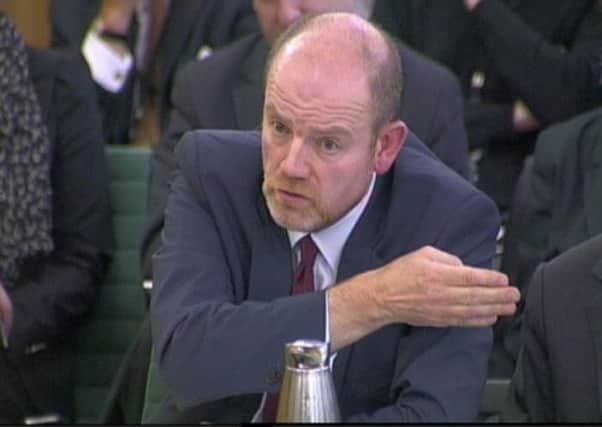‘Incompetence and failure’ over BBC boss pay-offs


Former director-general Mark Thompson, one of seven witnesses called by the Public Accounts Committee, was forced to deny a charge that the BBC had “lost the plot” when it gave a pay-off of almost £1 million to his former deputy, Mark Byford.
MP Margaret Hodge, who chairs the committee, told those present that the meeting was a “grossly unedifying occasion which can only damage the standing and the reputation of the BBC”.
Advertisement
Hide AdAdvertisement
Hide AdShe said: “At best, what we’ve seen is incompetence, lack of central control, a failure to communicate for a broadcaster whose job is communicating. At worst, we may have seen people covering their backs by being less than open. That is not good.”
Earlier in the hearing, she asked Mr Thompson why Mr Byford needed an extra payment when he was contractually due around half a million pounds, saying: “Why was £500,000, which is for most people megabucks, not enough?”
The BBC’s head of human resources, Lucy Adams, also came under fire after she said the payment was part of a plan to cut numbers of senior staff without causing too much disruption, leading Ms Hodge to tell her: “This attitude that the top cadre of people at the BBC faced greater difficulty when they faced redundancy rather than a receptionist or someone lower down is offensive, just offensive.”
In another heated exchange, Ms Hodge told Ms Adams: “I’m not having any more lies this afternoon.”
Ms Adams, who announced last month she was quitting the BBC, told MPs at an earlier hearing that she had not seen a note detailing plans for pay-offs to Mr Byford and marketing boss Sharon Baylay – but later admitted helping to write it.
Following the suggestion her evidence should be taken with “a pinch of salt”, Ms Adams said such an inference was “grossly unfair” and she had been confused about what document the committee was referring to.
In another barbed comment after Ms Adams asked to see a leaked email in which she allegedly referred to a severance package as a “sweetener”, Ms Hodge said: “You are developing a habit, Ms Adams, of changing your evidence after the hearing.” Ms Adams said: “That’s unfair, that’s really unfair, madam chairman.”
Mr Thompson told the committee that, in his view, Mr Byford’s severance package represented “value for money” and said he had been under “ferocious pressure” from the BBC Trust to make savings by cutting senior staff. Marcus Agius, former chairman of the BBC executive board remuneration committee, also described the pay-off as “value for money”.
Advertisement
Hide AdAdvertisement
Hide AdBut Ms Hodge told the former banker the committee were “astounded you took that view”, saying: “The shareholders of the BBC are the licence fee-payers and I cannot for the life of me see how you can justify these levels of redundancy payments.”
Mr Thompson said the decision for Mr Byford to leave the BBC with a total payout of £949,000 was part of a move to axe senior executives which would give the BBC annual savings of £19 million and he believed he “had the full support of the BBC Trust” to order it.
Ms Hodge said people were looking at BBC management in “dismay” and asked Mr Thompson if the BBC had, under his management, lost the plot.
He said: “I do not think we lost the plot.” He added he had inherited a way of doing things at the broadcaster, telling MPs: “I did not loosen the financial controls in this area.”